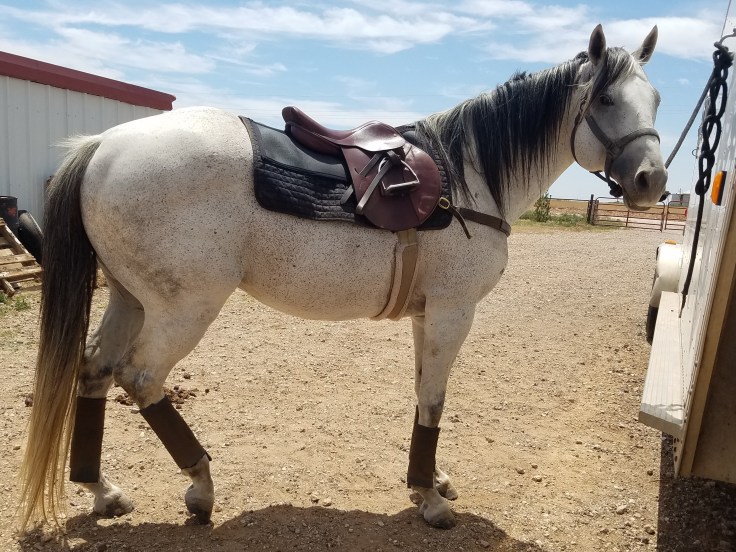by Joanna Byrne
Bay, Blood Bay, Dark Bay, Brown, Red Bay, Mahogany Bay… so many colors for one actual color. Just like Chestnuts, Sorrels and all their variances, Bays come in a whole spectrum of shades. But what is bay?

Last week I went over the Red Factor, and I touched briefly on Agouti or bay. Most fundamentally the Agouti gene acts on a Black base coat, lightening the body, but leaving the legs, mane, tail and ear tips black. This shading appears in every shade from darkest brown to the lightest cherry red. On a Red basecoat, Agouti does not visually present itself, and so can be carried in hiding through several generations of Red basecoat horses.

There is a mention at Etalon Diagnostics to Agouti genes At and A+, resulting in Brown and ‘Wild Bay’ colors, but it is stated that at this point only a test for A is available.
I will take here to issue a note of caution: If you find some cool web pages with equine coat color genetics information and absolutely zero sources listed, do not waste your time. I found several pages when searching Agouti gene information that referenced markers such as A-, A+, and At, none with links to actual research and all with ties to one online horse game or another.

Agouti, with all its shades, is pretty cool, and Bay is undoubtedly a common color either on its own on mixed with a dilute like Cream or Dun. Remember though, a faded Black is still a black, and not a Brown, though sun fading can be deceiving.
If you are interested in the study about the effects of Agouti and Red Factor on equine behavior, check out the link here: https://academic.oup.com/jhered/article/107/3/214/2622964
To read the introduction to Red Factor go here.
References
Agouti (Bay/Black). (n.d.). Retrieved from VGL UC Davis: https://www.vgl.ucdavis.edu/services/horse/agouti.php
Agouti (Bay/Black). (n.d.). Retrieved from Animal Genetics: http://www.animalgenetics.us/Equine/Coat_Color/Agouti.asp
More about Agouti. (n.d.). Retrieved from Etalon Diagnostics: https://www.etalondx.com/agouti-gene






 Rider profile is pretty straightforward, with name, gender, and weight. A profile picture can be added, and that pretty well sums it up. Nicely if you go into settings, you can link it to your Google Fit account, which is handy because I can tell you that Google Fit usually thinks I’m riding a bicycle when I ride my horse.
Rider profile is pretty straightforward, with name, gender, and weight. A profile picture can be added, and that pretty well sums it up. Nicely if you go into settings, you can link it to your Google Fit account, which is handy because I can tell you that Google Fit usually thinks I’m riding a bicycle when I ride my horse.
 Logging Rides
Logging Rides














